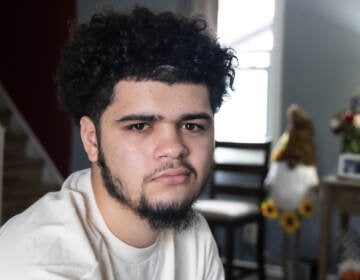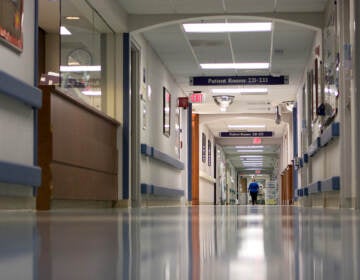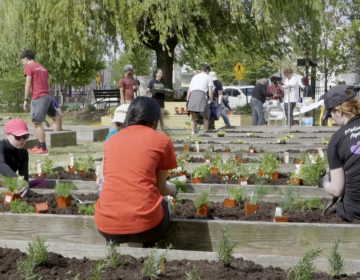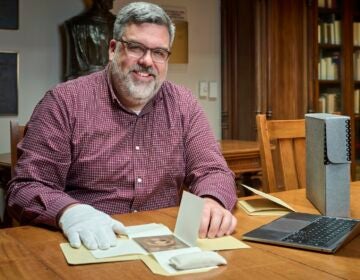‘Part of the job’: UPenn med school teaches future physicians how to advocate for their patients in public health arena
Medical students at the University of Pennsylvania can take a class that teaches major public health issues, and prepares them for patient advocacy.
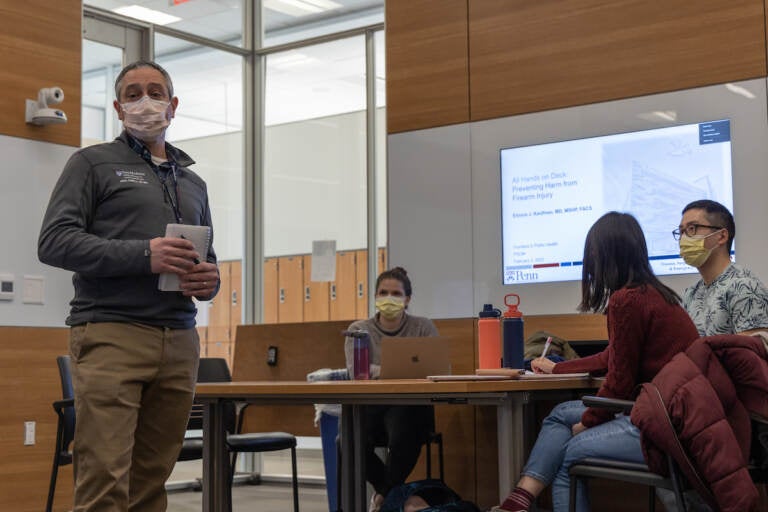
Dr. Mario DeMarco, family physician and associate professor of Clinical Family Medicine and Community Health at the Perelman School of Medicine, teaches the Frontiers in Public Health class. (Kimberly Paynter/WHYY)
Dr. Elinore Kaufman is a trauma surgeon. And in Philadelphia, she sees a lot of patients with gunshot wounds.
“We say firearm injury is a public health problem,” she says. “What does that mean to you, when I say that?”
Kaufman poses the question to a classroom of fourth-year medical students.
“It’s not just a problem between individuals, but it affects communities at large,” one student responds.
“Totally, I agree with that,” Kaufman says. “What else?”
“It’s impacting well-being on a mass scale,” another student answers.
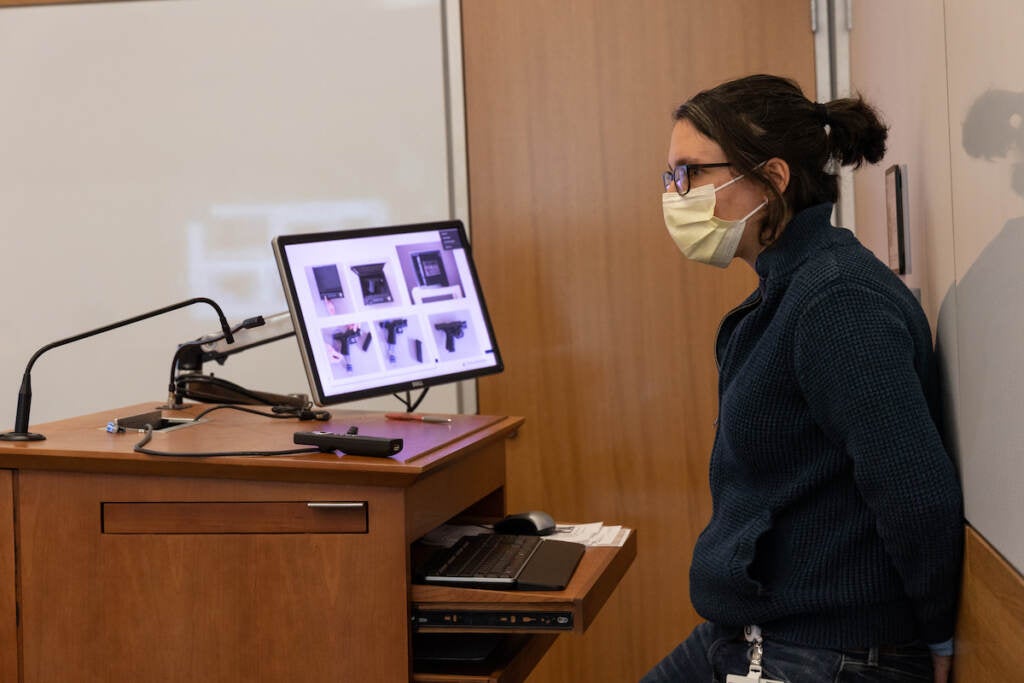
“Yeah, I think that’s true. It’s to say those things, and to say also that it’s not just those things,” Kaufman says. “It’s a health phenomenon that injures people’s bodies, injures people’s minds, their families, their communities. It affects us all, in a number of different ways.”
On a recent Tuesday, Kaufman served as a guest lecturer and gave students at the University of Pennsylvania’s Perelman School of Medicine a crash course on gun violence — why it happens, who is most at risk, and approaches to prevent it from happening.
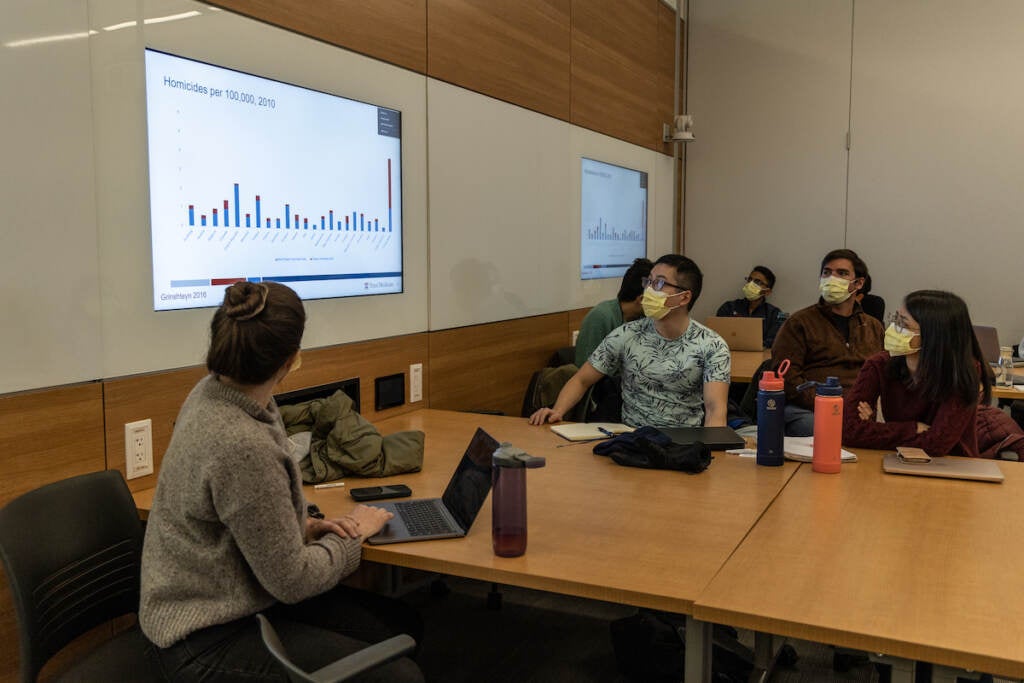
In the same week, students delved into topics like vaccines, lead poisoning, environmental health, and the opioid crisis.
The lessons are part of a short-term, accelerated course for soon-to-be physicians that bridges the education gap between public health and medical care to teach them how they might use their voices and expertise to help their patients beyond the walls of a hospital or exam room.
Students and medical educators say this is an especially important skill today, when health and science policies and regulations often become embroiled in political controversy and suffer from public misunderstanding or misinformation.
“The lesson that students are surprised to hear in this course is that decisions are made at many levels about policies that can impact health,” said Dr. Mario DeMarco, “with very little input from the scientific community, including medicine.”
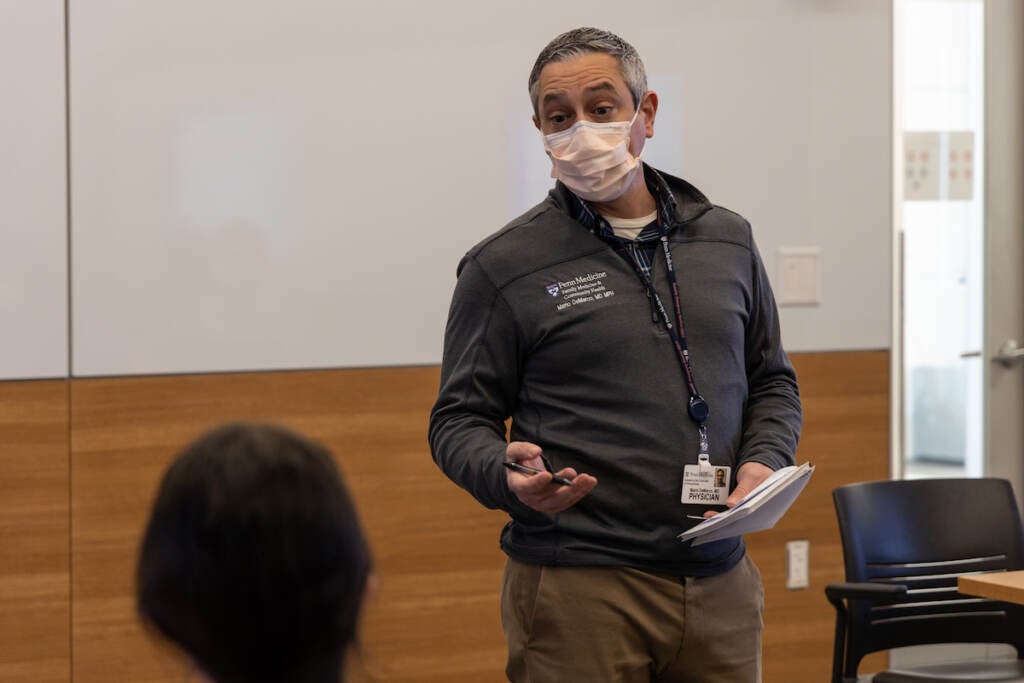
The primary goal of medical education is to train students how to diagnose and treat illness or injury. Public health, on the other hand, focuses mainly on addressing factors that influence the health status of people in communities, or among specific groups of people.
DeMarco, a family physician and medical educator at UPenn, said there’s too much of a divide between the two areas of practice, even though there’s significant overlap in the populations they serve.
“I think empowering a physician workforce with the ability and the skill set to share their opinions, to communicate with media and the public, and to advocate for what we feel is right for better health outcomes is as important of a clinical skill as doing a physical exam,” he said.
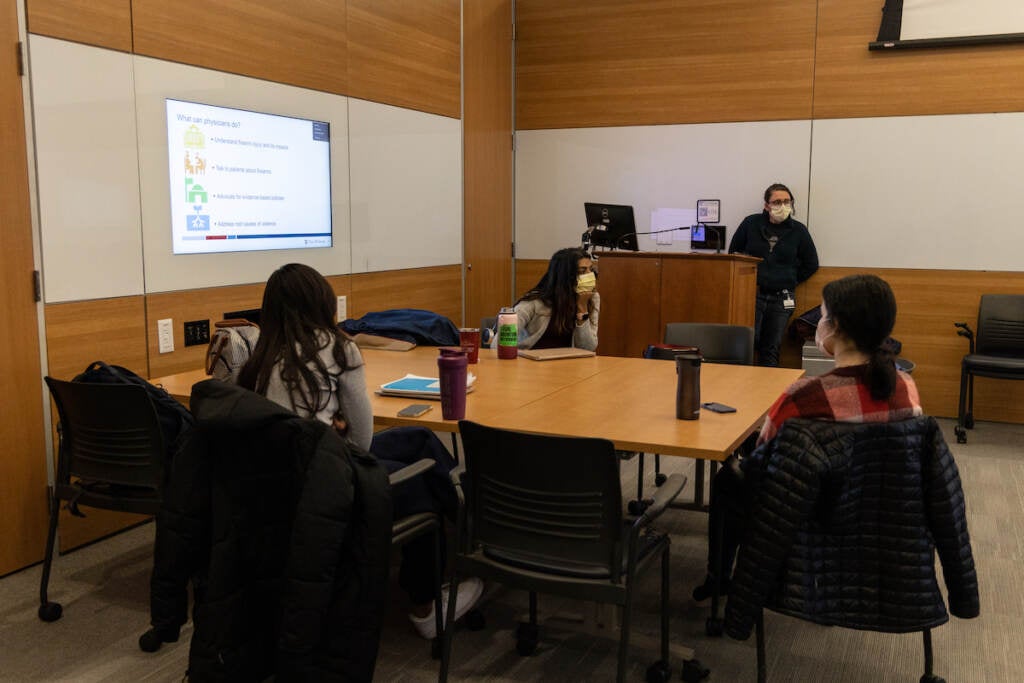
A 2021 survey of U.S. medical students found that a majority of physicians in training were interested in health advocacy, and about half of respondents thought it “very important” that physicians provide health-related expertise to local community organizations.
The UPenn class teaches students how they might engage in public health advocacy and how to write an opinion editorial for a media publication.
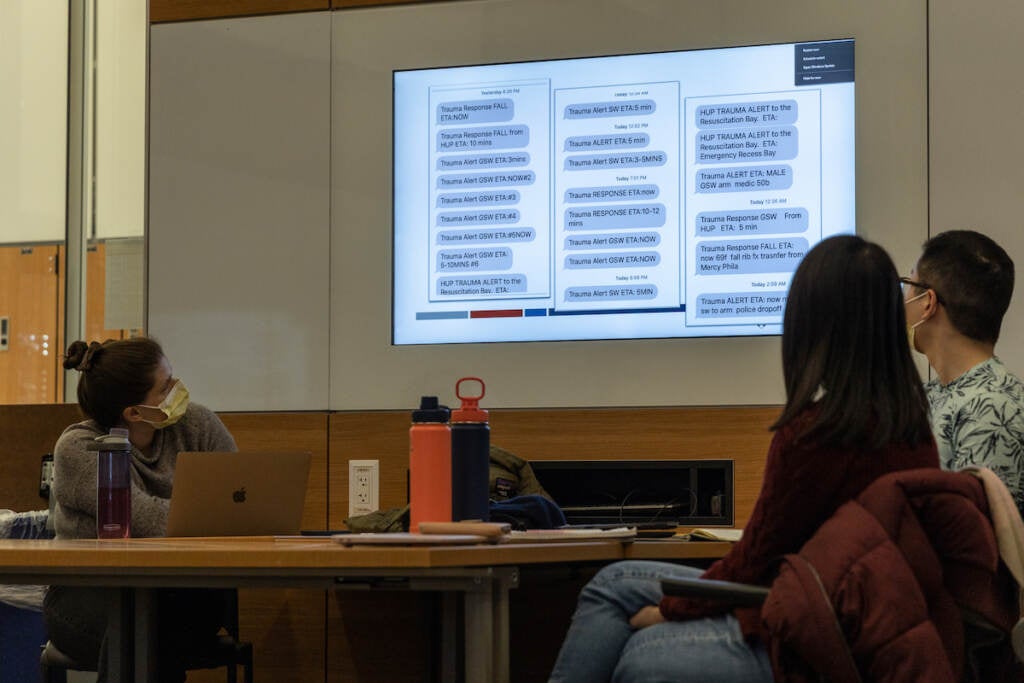
The course was first offered to students about six years ago, and DeMarco said the demand among students has remained consistent.
Rudmila Rashid is a fourth-year medical student who is pursuing a specialty in child neurology, maternal and fetal medicine. She said she’s looking forward to embracing the patient advocacy part of her career.
“I think physicians are also just poised uniquely in society that we are very revered, we are very respected. Our voice carries a lot of power,” Rashid said. “And I think not doing something with that would honestly be a huge waste.”
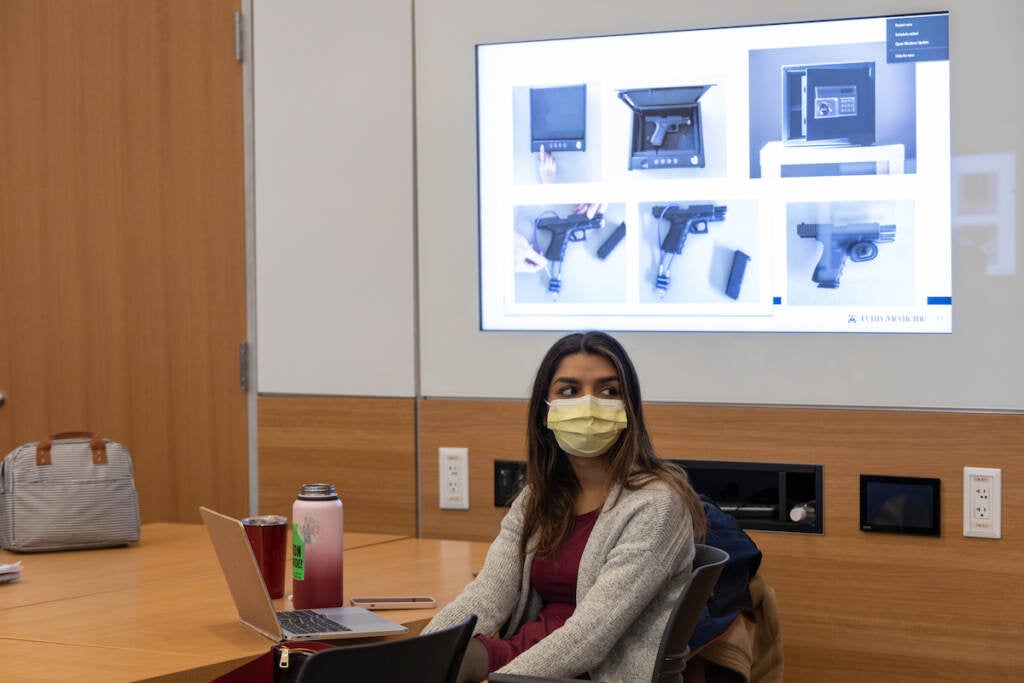
Classmate Sabrina Gonzalez, who is interested in going into pediatric primary care, said having more exposure to and awareness about these public health issues can help physicians like herself advocate for evidence-based solutions.
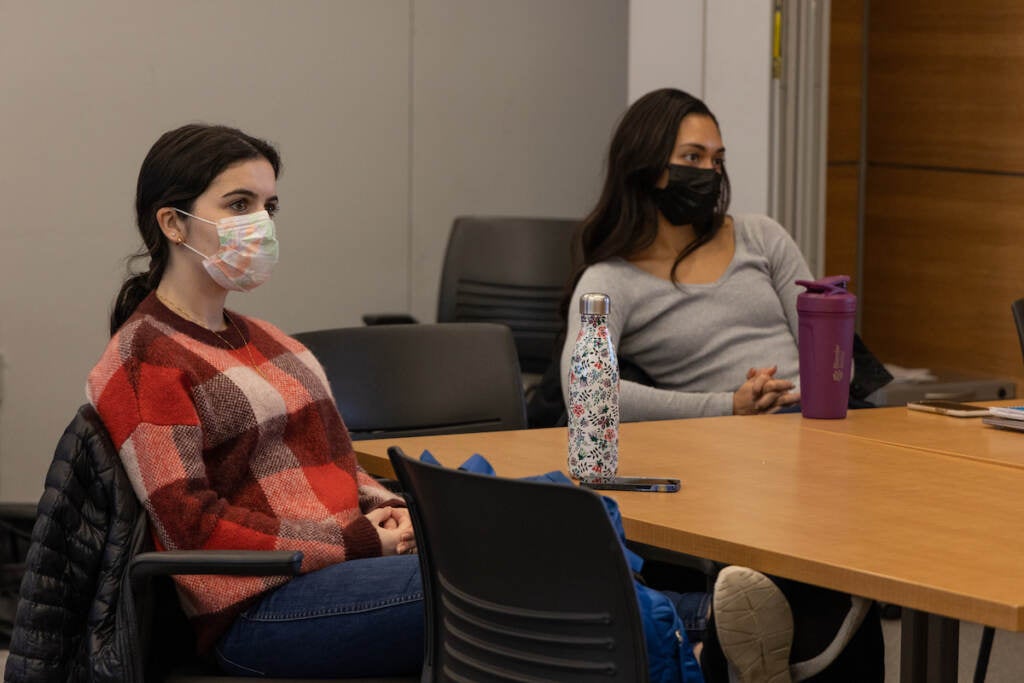
“These things become so politicized and controversial, but if you go back down to brass tax and the facts, as a pediatrician, the number one cause of death for children is firearm injury,” Gonzalez said, “and you just can’t ignore that fact and we have to do something about it.”

Get daily updates from WHYY News!
WHYY is your source for fact-based, in-depth journalism and information. As a nonprofit organization, we rely on financial support from readers like you. Please give today.


